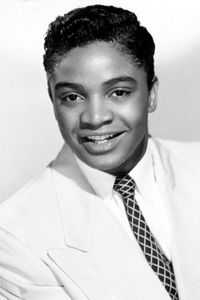Jackie "Sonny" Wilson was born in Detroit, Michigan, and grew up in Highland Park, the only son of Jack and Eliza Mae Wilson from Columbus, Mississippi.

Jackie Wilson
Deceased · Born: Jun 9, 1934 · Died: Jan 21, 1984

Deceased · Born: Jun 9, 1934 · Died: Jan 21, 1984
Harlean Harris
( Apr 1, 1967 to Jan 21, 1984 )Freda Hood
( Feb 1, 1951 to Oct 1, 1965 )Jackie "Sonny" Wilson was born in Detroit, Michigan, and grew up in Highland Park, the only son of Jack and Eliza Mae Wilson from Columbus, Mississippi.
Career